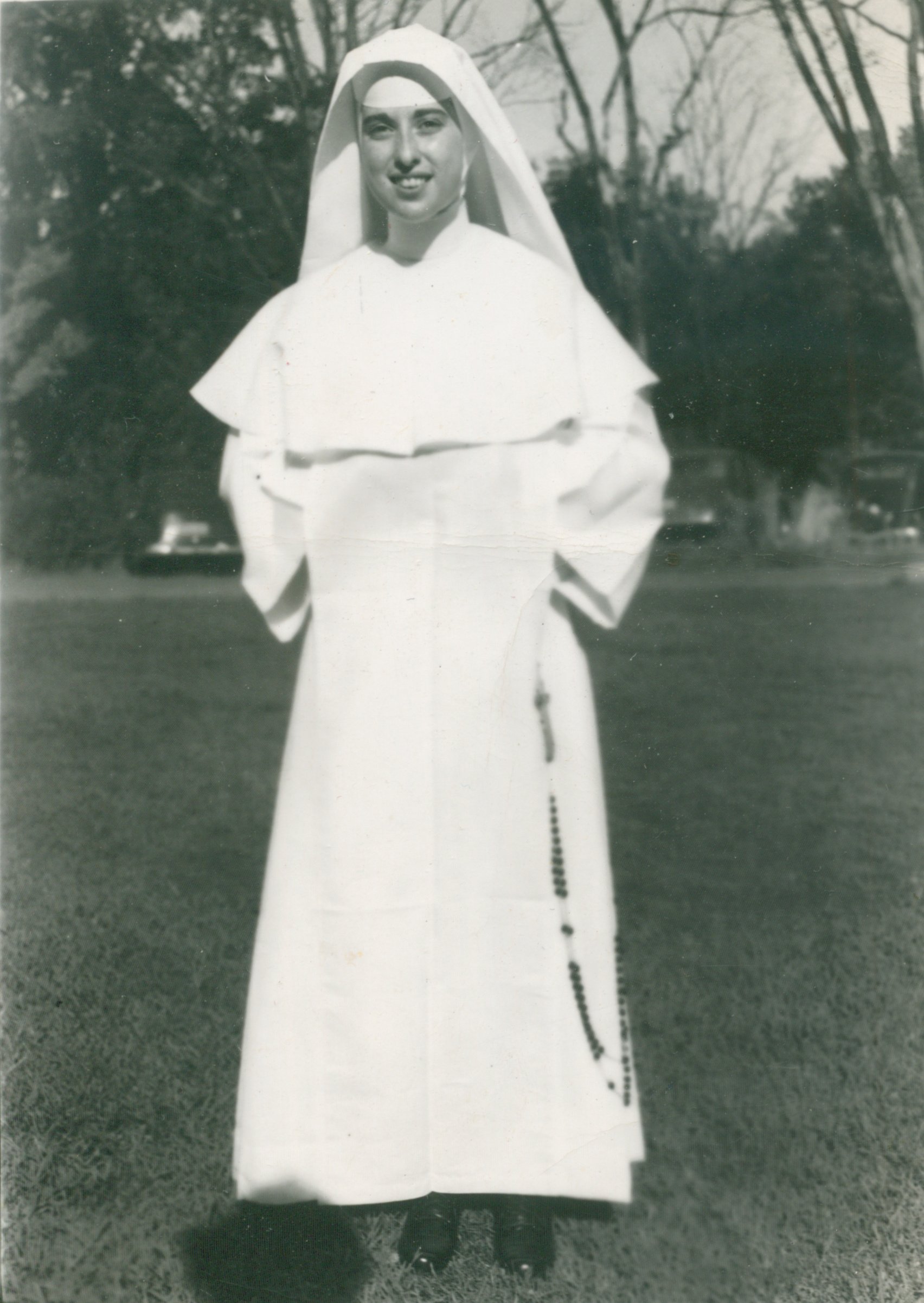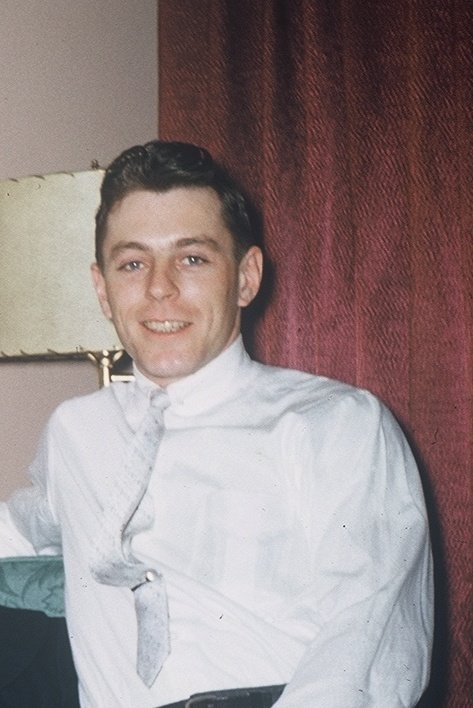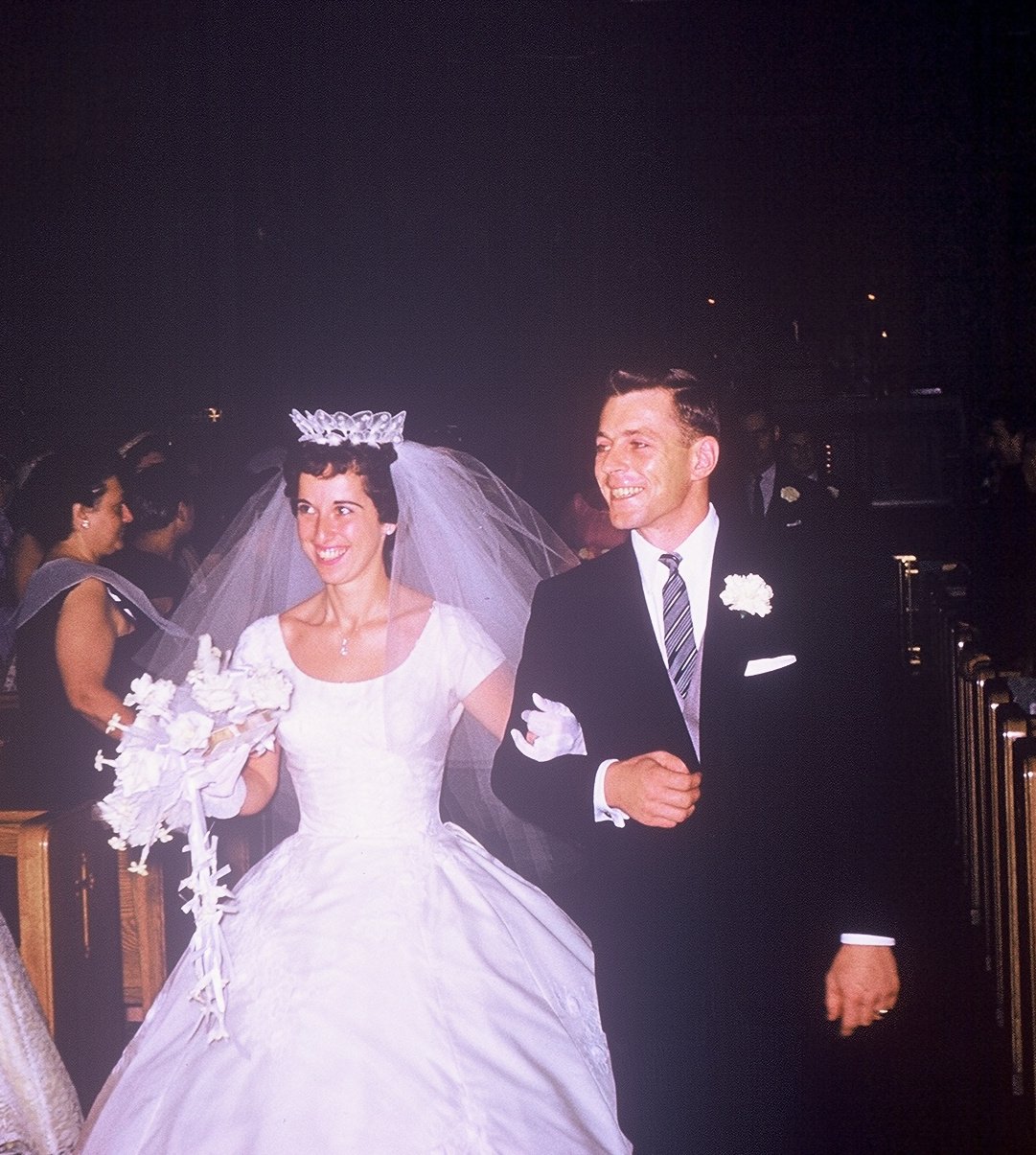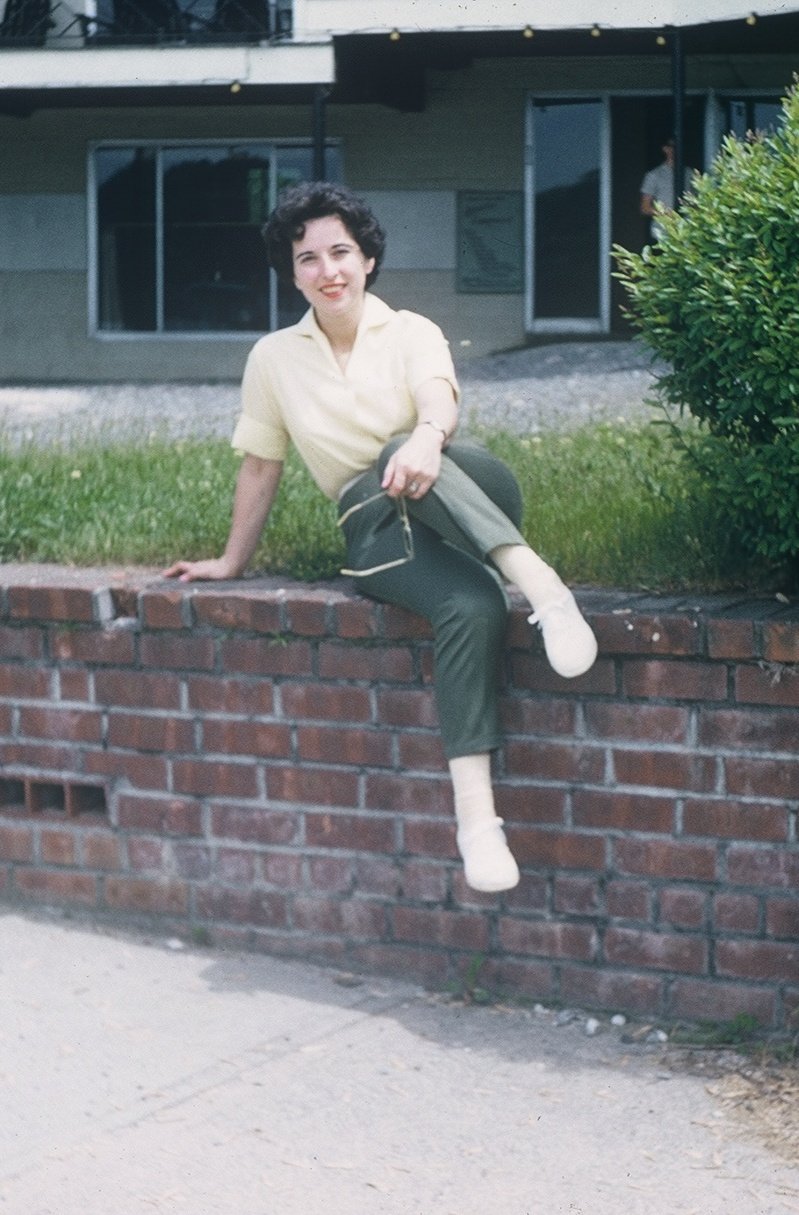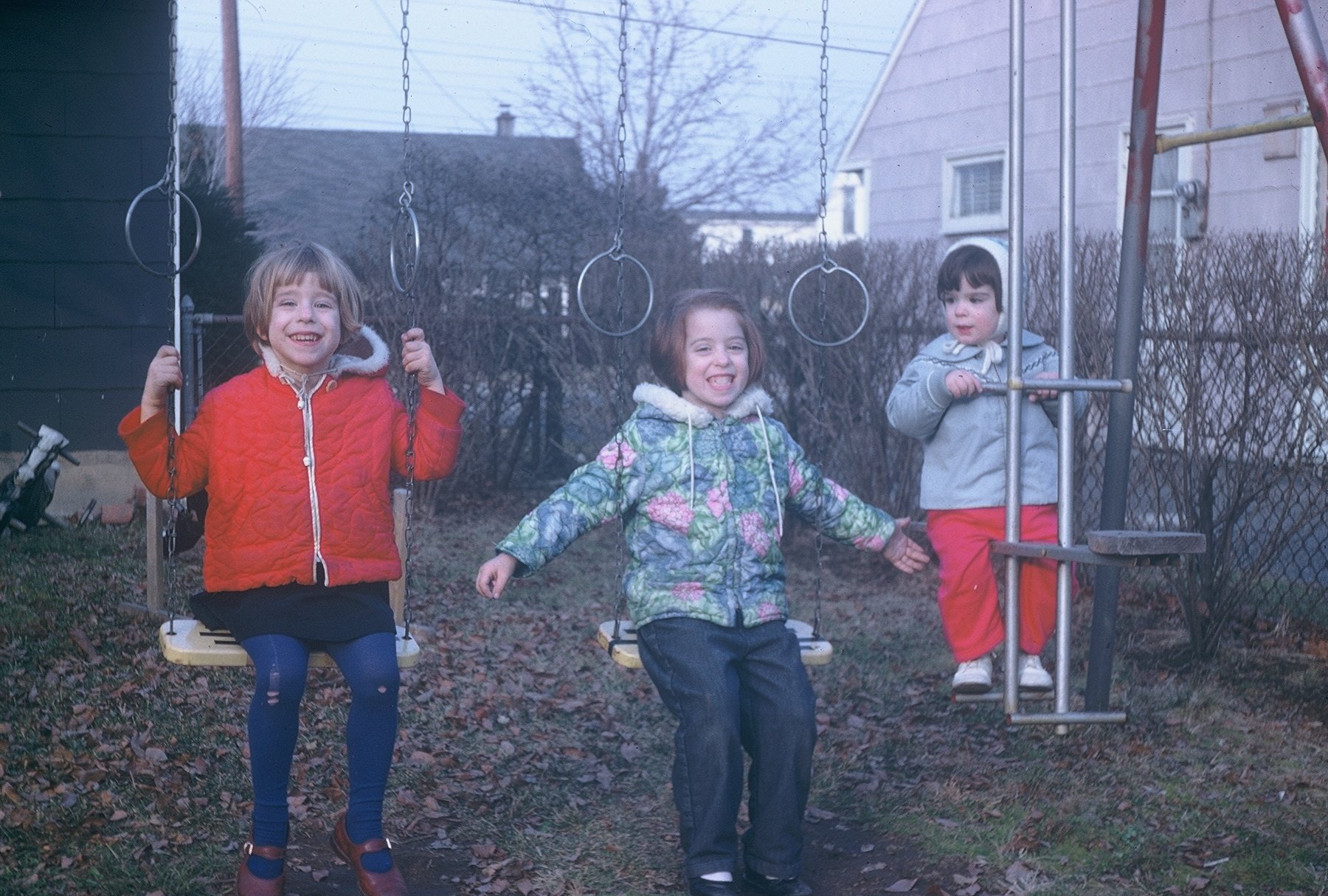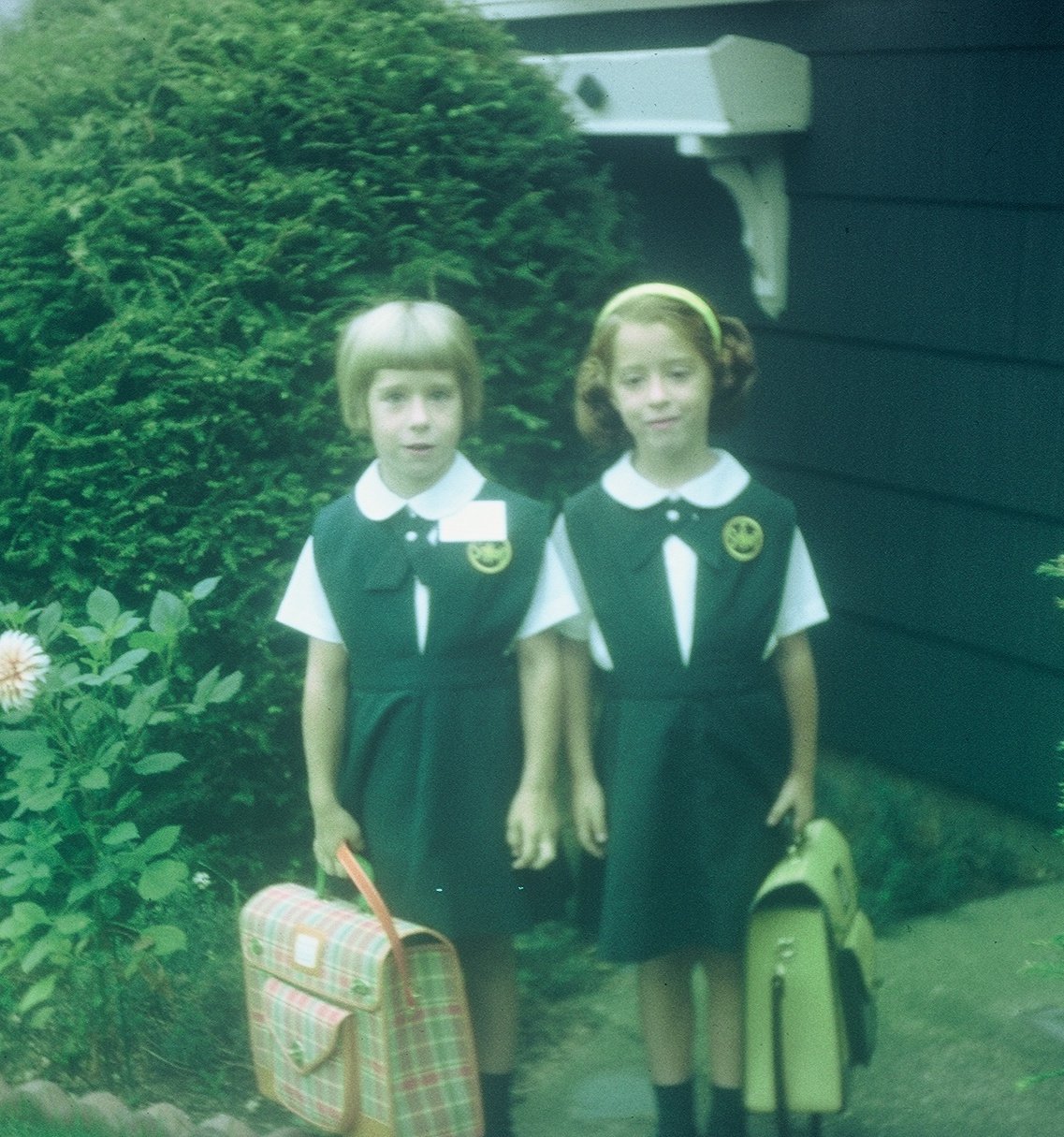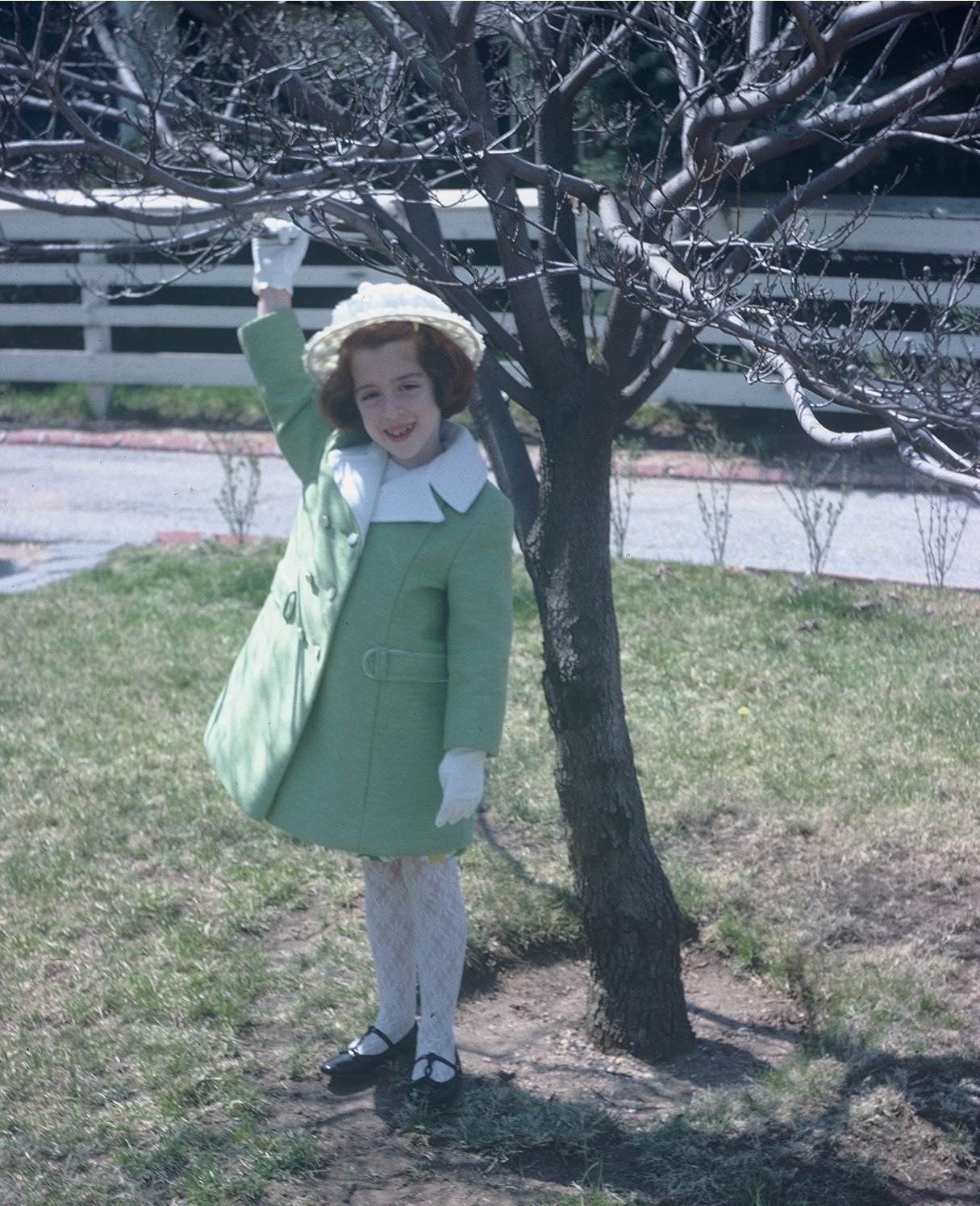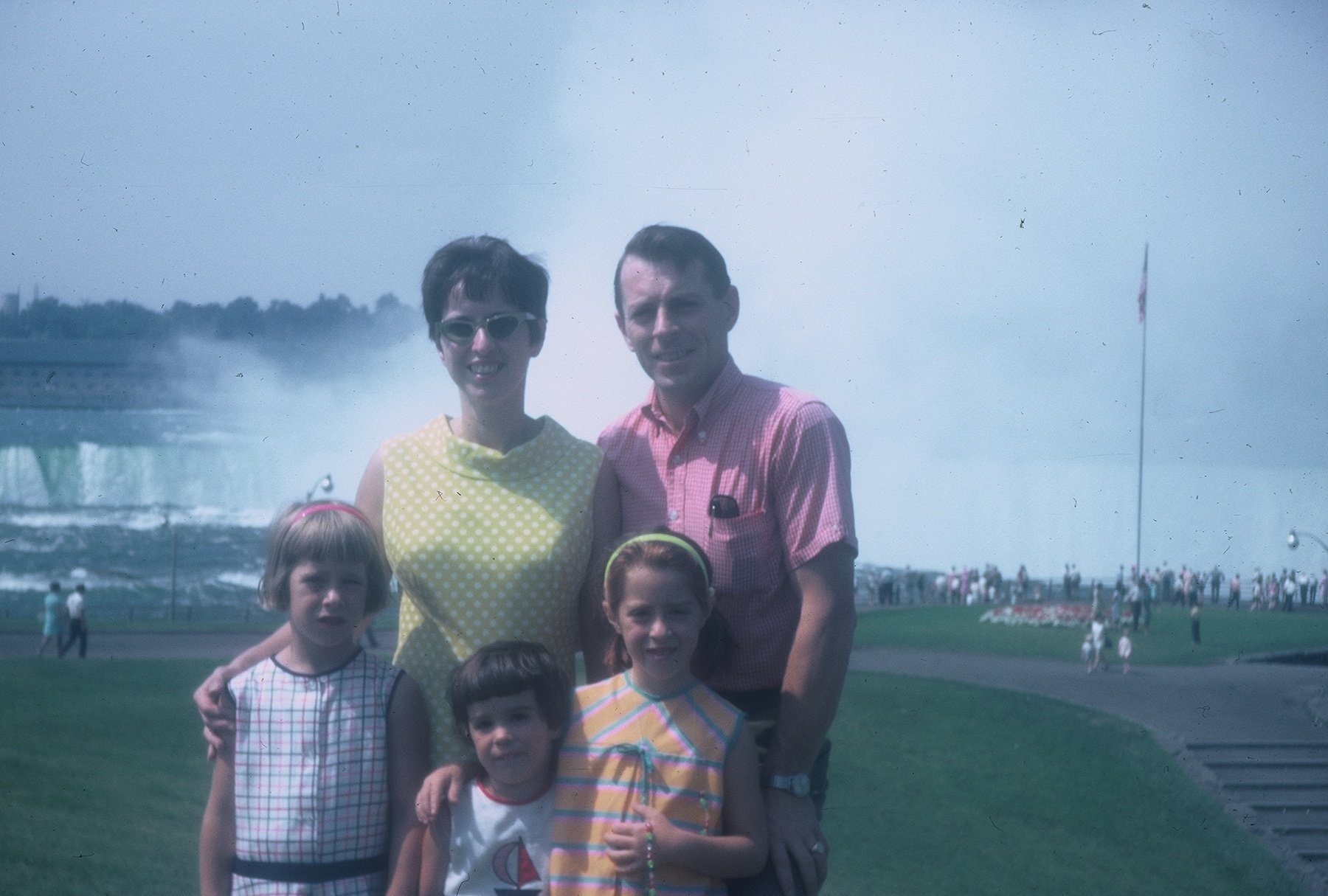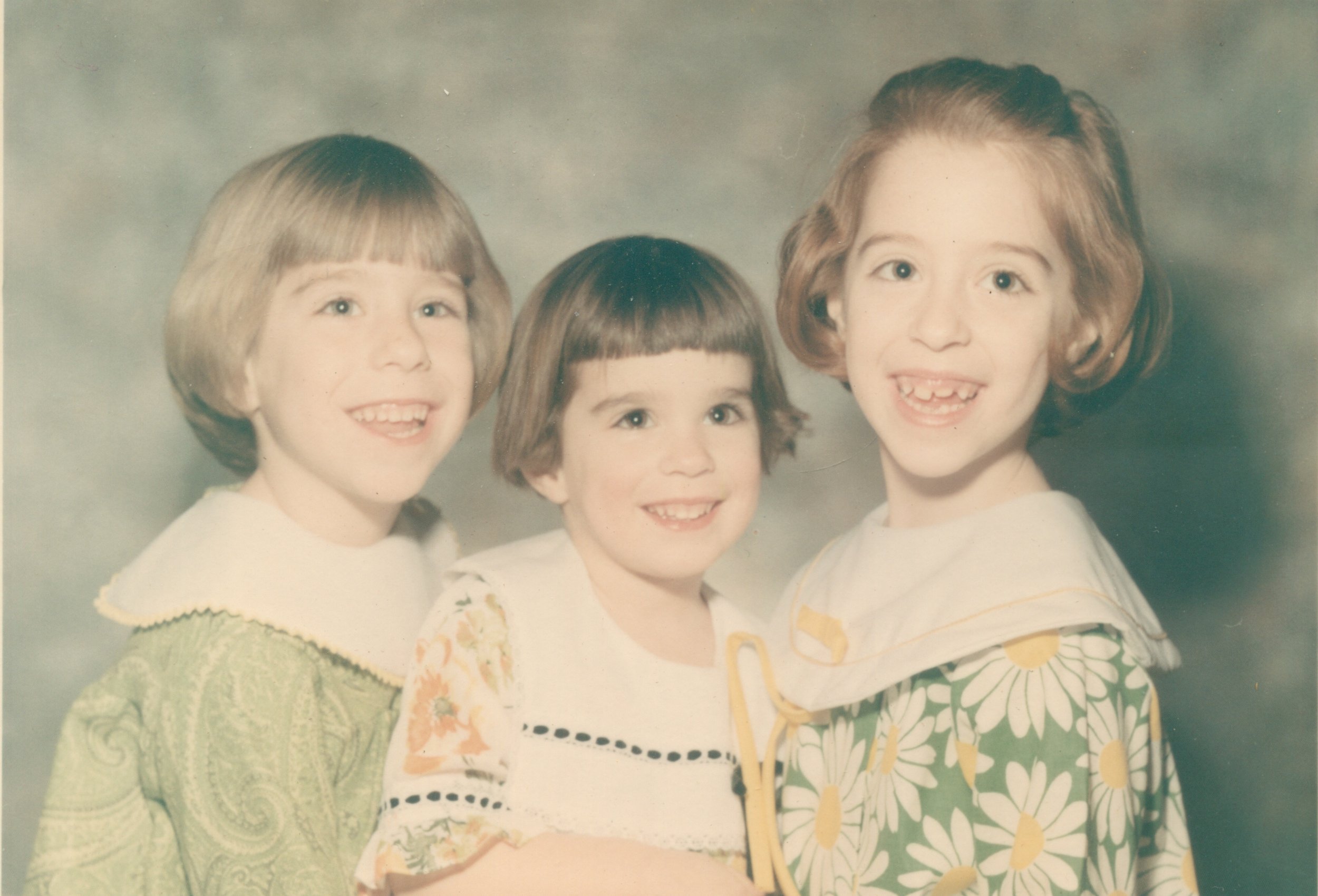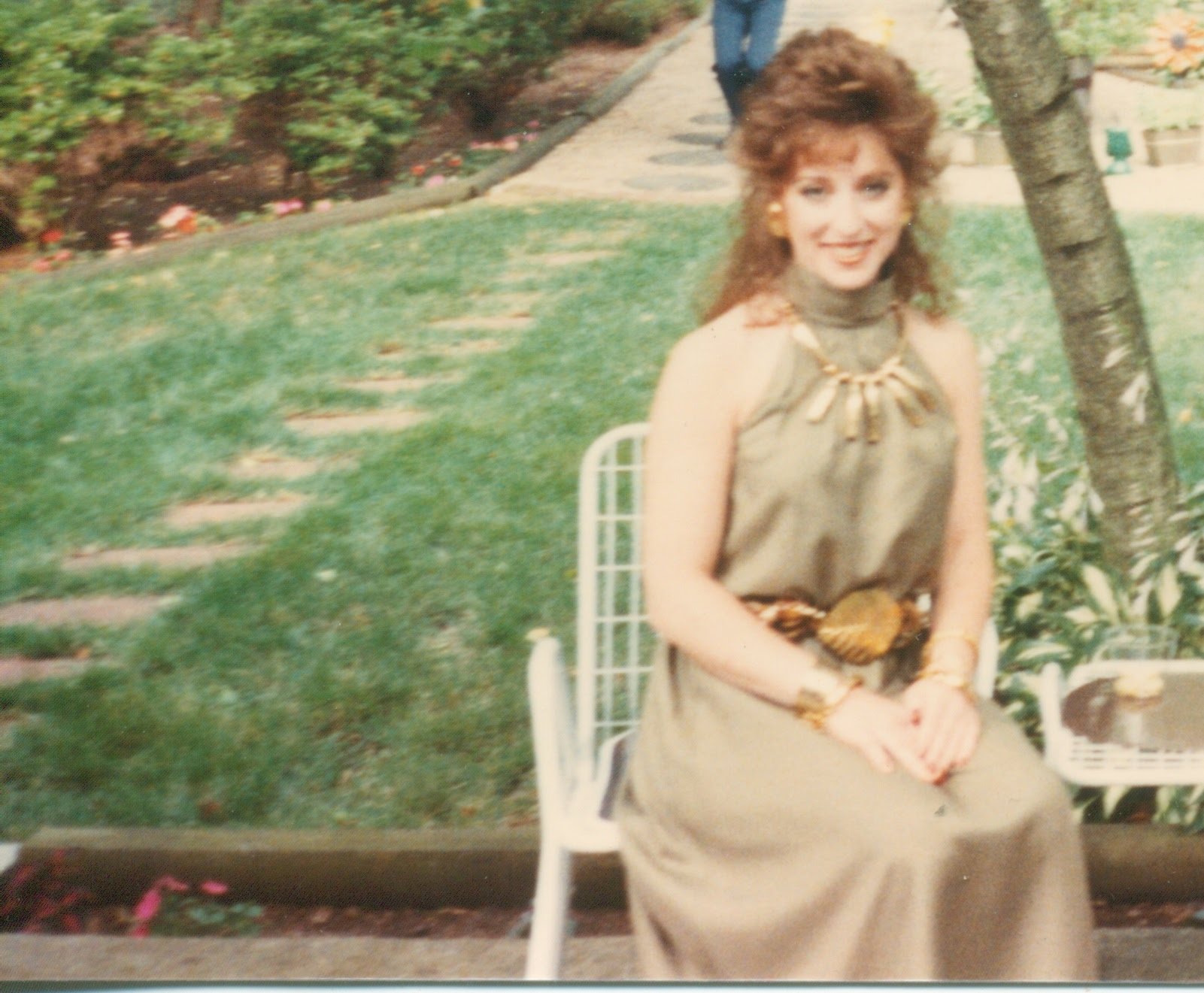Seduced
Episode 1 Extras
A glimpse at some of the most important people in my life mentioned in this episode, and a few photos of me from my childhood to my 30s.
Transcript
Every day we make choices that slightly shift our course, that alter what might have been. On their own each tiny modification is so inconsequential it goes unnoticed. But strung together, they bring you to the day when a singular decision completely changes your life.
My name is Carol Fisher and this is The Carol-Van.
For the past three years, I've been living and traveling in a minivan, by choice. I don't own or rent a conventional home. Anything I do own fits in my car. I sold everything else. Second only to becoming a mother, it's the best thing I've ever done!
How did I come to this singular decision?
Recorded in Plumtree, North Carolina, a small community nestled in the Highlands Region of the Blue Ridge Parkway, this is the origin story of my van life.
My neighbor was so loud, so obnoxious, so offensive that I sold everything I owned and moved into my car to get away from her.
Hightailing it is kind of my MO.
It started with rebelling against parental oppression when I was all of seven years old. One Saturday, I wanted to wear my tap shoes all day, but my mother wouldn't let me and I could not tolerate that. So, I packed my little black and red plaid suitcase and ran away to the neighbors' house.
Frustrated by my parents being parental, I ran away from home a few times. Never far or for long, but the act of it was such a rush of freedom. I did leave home for good when I was 19, not for college, but to live on my own. Kind of. I moved in with my then-boyfriend. It was less than ideal. We lived in the basement of his parents' house. Still, moving in with him got me away from my parents and I never considered returning.
We did get married and then I quickly divorced that young man. I Remarried. Eventually divorced the second husband. And, I quit more than a few jobs along the way. In every case, it was the weight of oppression that sent me running.
I found my parents' parameters for approval were too narrow for both my real life and my fantasy life. Books swept away my worries. As an avid reader I romanticized all the stories that affected me. The Diary of Anne Frank, Little Women, Wuthering Heights, Gone with The Wind; I would imagine that like heroines of those stories I was unique, indomitable, brave, and oh, terribly tragic. I tried but it was difficult to fully emulate my heroes with two little sisters ready call me out for being weird.
More relatable and compelling than all the fiction I devoured, were my parents' stories of rebellion from their early lives. True stories, as thrilling to me as any novel. I idolized my parents. My father bought I car when he was, I don't know, 12. And then hid it from his parents by parking it around the corner. Then, he left home to compete in the rodeo circuit when he was only 16. Sixteen! He traveled all over the United States, for years, well into his twenties. In contrast, my mother chose to enter the convent when she was young. But with her outsized personality, wit, and intelligence, she needed so much more than the subjugation and piety of convent life. And the nuns were cruel. She knew herself and had the courage to leave the convent before she took her final vows. Later, and some time before meeting my father, she fell in love, got engaged, then changed her mind and broke off the engagement. She was still living with her widowed mother in 1950s' Little Italy. Her decision at that time was scandalous. I admired my parents for their independent spirits. For making bold decisions and sticking to them without, it seemed to me, caring about what anyone else thought. My parents definitely marched to the beat of their own drummers. I wanted to be like them.
The truth; I was terminally mediocre.
So, with all that lore to draw from, I'd try on the personalities of people I admired, real and fictional. There was a brief time as a tween when I would speak with a "British" accent in public, probably badly, out of earshot of my family. There was also the period of walking with a ridiculously exaggerated limp as though I was born with some dreadful malady. Later, as a teen, I moved into my saintly phase. Already an approval-seeker, and deeply influenced by my Catholic upbringing, I thought if I could achieve selflessness, I might then truly be tragic and heroic. I volunteered to work with a group of developmentally challenged teens; as a candy-striper in a local hospital; and I worked as a home health aide. Then in my senior year of high school, I volunteered to be religion teacher, that was an epic fail if there ever was one. Because it made me realize I was not religious, and I didn't believe in God. At all.
As I teenager, when I spent hours alone in my room as a teenager, I imagine it was tough for my parents to know how far outside the boundaries they'd made to let me wander while staying true to themselves and keeping me safe. I had no way of understanding that though, and I completely lacked the empathy to consider how they felt, despite my mother's notorious meltdowns. I would steel myself against those tirades. They were filled with targeted insults, intentionally cruel, to break me. When she was angry, nothing escaped her contempt. How I wore my hair, how I walked, how I talked, how I dressed. My friends. My grades. My boyfriends. The message I heard was that love is conditional. And I was a loser. Mostly because in moments of anger she'd snarl, "You're nothing but a loser." I carried those words with me for years.
Don't get me wrong. My parents aren't monsters. They're warm, generous, lovely, complex human beings. They never lost their sense of adventure and fun. I think their youthful trailblazing both dovetailed and contrasted with who they were as parents. And they favored an authoritarian style of parenting. It was the '70s. Nobody was thinking about their parenting in the '70s. They couldn't have predicted that it was my nature to internalize everything and how their words would affect me. And they were raising three teenage girls. They were simply doing the best they could.
I was no mouse. My defiance exceeded the scope of their parenting abilities. In my late teens, I refused to keep curfew, was insolent, drank, and nobody could keep me away from boys. Although, these days, my father refuses to say I was problematic. He claims he doesn't remember my being difficult. Either he's being kind or he really doesn't remember, much the same way I don't remember the pain of childbirth. In any case, my recollection of our life together doesn't always match his. My perception of it is what's shaped me. I do not like confrontation and actively avoid it. Despite the conflicts with my parents, at my core I'm a people-pleaser. And it's been problematic for me.
At 19, feeling misunderstood, I believed that leaving was the only thing I could do to save myself. I felt misunderstood. I felt that outgrown my parents' rules. And, in breaking those rules, I was a constant disappointment to them. I felt I would never be who they wanted me to be. It was painful to always be at odds with them and feel I wasn't good enough. So, I left.
Away from home, it wasn't long before I discovered that I'd merely traded parental oppression for male oppression, compounded by societal oppression. There was immutable pressure to serve the male gaze. Coming of age in the 70s, America's message to women was vexingly mixed. Get educated, make your own money, get married, have children, be a gourmet cook, keep a perfect home, be social, be fascinating, serve your man, be sexy. And for God's sake don't seem too smart or men will feel emasculated.
My indoctrination was absolute. The price was excruciating.
In every relationship I felt trapped in a box of someone else's ideal. From my father to my adolescent crushes to my adult male partners, I don't recall even one of them ever conveying that I was enough; loveable exactly as I was. There was something about me that always required fixing or changing. I was sure affection would be withdrawn if I didn't please the male-of-the-moment. My hair, my make-up, my body, my style, my behavior all subject to their judgement. One partner was fond of threatening that if I ever gained weight, he wouldn't even bother to fuck me with his brother's dick. Yeah, you heard that right. Physical beauty was paramount. And I'm no beauty. It was an impossible standard. Without the belief in myself that I had any talent or skills to develop, that I was essentially without intrinsic value, I could only pore over magazines filled with beauty and sex advice, and spent a fortune on cosmetics, hair products, and salon visits. I spent hours on my hair and make-up every morning, desperately trying to create the illusion that I was almost attractive. That made me late to everything all the time. Leaving the house, I'd be plagued by insecurity. Even men I knew only peripherally commented on my appearance. Complimentary in ways that made me uncomfortable, critically in ways that were disturbingly intimate. I was so accustomed to this type of intrusive male behavior that it never registered to me as sexual harassment. I had grown up with judgment as "normal" and believed it to be warranted.
The men I was drawn to always seemed, at first, to be confident and decisive. Protective. It turns out, I mistook toxic masculinity for strength of character. Because over time, they inevitably took up all the oxygen, all the space in the room. I couldn't breathe, couldn't speak up, for fear of rejection. And you, know, I've thought about it. Perhaps their behavior was to mask their own insecurities. To meet the standard set for males in our society. A misinterpretation of bullying as leadership. A good offense as a good defense. Or complete entitlement. I didn't know. I still don't know. What I did know, was that I would not use the language they used. Communication shouldn't involve hurtful insults. But, considering the style of communication I experienced growing up, I had no good model for conflict resolution and lacked the tools to articulate how I felt. Rather than risk being hurtful, I simply acquiesced. I was a traitor to myself. My silence strengthened their emotional control over me.
It was decades before I recognized the pattern to reject it.
I was in my 50s when I finally achieved a measure of peace. It'd been several years since I divorced my son's father, and I had recently extricated myself from a long-term relationship that really should've been no more than a few weeks of fun rebound sex. I was still desperately seeking external validation, and I worked hard to make that relationship into something it could never be. I can't regret it though. It was through that particular experience that I came to understand my role in relationships that were bad for me. I realized that I was treated poorly because I had allowed it. Such an empowering discovery. So, in my 50s, decisively single, I was free from having to make a man's morning coffee. Free from making meals for a man with the palate of a child. Free from BS mansplaining. Free from gaslighting and manipulation. Free from casual cruelty and free from lies. I was free to occupy all the space and breathe as deeply as I wanted.
I lived alone, but I wasn't lonely. I'd chosen the unit for its location and its balcony overlooking a pretty courtyard. There were only two neighbors nearby, one at the far end of an open-air corridor, the other across the same hallway. For introverted me living in a suburban apartment complex, it provided a decent sense of privacy and seclusion.
Until a new neighbor showed up.
When the North Carolina weather wasn't too hot and humid, my balcony was really a lovely retreat, especially after a long day at work. I made it into a tiny oasis. There were potted flowers, a cushioned chaise and a big umbrella for shade. Weekend mornings, I loved to be out early and wait for the sunrise. It was my favorite spot to sit and write. I accepted the level of noise inherent in space occupied by hundreds of residents. Typically, I'm unbothered by ambient sound. But this neighbor was exceptional. Even across the courtyard and one floor below me, she was loud.
The new neighbor seemed to conduct every phone conversation on her patio. There was something about the character and texture of her voice that grated my nerves. Her tone was one of eternal disgust. As though she was displeased with everything all the time. Who has the energy for that?
She was strident in a way I had difficulty ignoring. Even worse, I found myself regressing to old habits by accommodating her behavior. When she'd go out to her patio, I'd convince myself that I'd been outside long enough and leave my balcony. I arranged to be on the balcony at different times of day. But it didn't matter. In the rain, in the snow, early mornings, late nights she was out there. It felt as though she was stalking me, even though that made no sense. She probably didn't even know I existed.
Day after day her smoky exhalations drifted up to my balcony and infected my air. With every incidence of her pollution my hatred of her increased exponentially.
During that time in my life, I was navigating a wide range of milestones. I was single, a good thing; an empty-nester, a bittersweet thing; and a daughter devastated by my mother nearing end-stage Alzheimer's disease. An agonizing thing. On an unusually quiet Saturday morning, not long after placing my mom in a memory care facility, I was on my balcony thinking about how cruelly my mother's life would end. Cruel for her, my father, our entire family.
Then, I heard it before I saw it.
I could be wrong here, but I remember looking up to see an enormous slithering creature covered in pustules, stringy hair hanging in its face, wearing only a towel, sucking down a cigarette, folding laundry, and shouting into a phone. In the same instance I wondered how the hell it didn't lose either the towel, the phone, or the cigarette while talking and folding laundry.
Its shameless entitlement made my head explode in anger.
There are fundamental social contracts when living in close quarters. One is to be mindful of your neighbors. This woman's blatant inconsideration enraged me. All the new space I'd acquired for myself was rendered intolerable by her proximity.
When I stormed inside, I could still hear her voice through my closed windows. But I don't do confrontation. I reverted to my MO.
Of course, I didn't immediately ditch all my stuff and drive away. Instead, I researched where to move next. That snowballed into considering another town, then a different state entirely, and well naturally, a new job. I saw it as another chance for reinvention. No, no, reincarnation. I liked that better.
After running down internet rabbit holes all night, by dawn I hadn't found a new town or a new job. What I found was van life.
I had no idea van life was a thing. People converting ordinary cargo vans to functional tiny homes on wheels. Folks of all ages living like nomads, working, and having adventures. Each vehicle, each day-to-day bespoke. The lifestyle screamed honest-to-God freedom and completely seduced me.
Growing up, our family vacations were always by car. Through the magic of internal combustion engines, highways, tunnels, and bridges, our car would take us from our home to new and often unknown places. Road trips were one of my very favorite escapes. Watching the scenery speed by, I believed there was something out there for me. The anticipation of that something felt like a low hum vibrating in my chest that made my heart pound and gave me butterflies. When I could drive and had my own car, on the road I often sensed that the "something else" was just around the corner, but it was elusive and I could never land it. The responsibilities of adulthood quieted but never crushed that feeling. Sometimes, its resurgence would surprise me with its intensity. Teasing me that the something was almost close enough to touch if only I knew where to look.
With the discovery of van life, I knew that the very something that had eluded me my entire life was now the something I could drive to. Real freedom from oppression. Freedom from relationship compromise, from criticism, from the male gaze, from social obligations, from possessions, from an office cubicle, from noisy neighbors. Freedom to go where I pleased, to spend my money as I chose, to pursue whatever piqued my interest, to change my mind, to be my authentic self.
After a lifetime of attachments, I had come to a point where nobody was depending on me for anything. Not a partner, not my son, not my parents. Nobody would suffer if I embarked on van life and failed. I had absolutely nothing to lose. The revelation was mind-blowing.
For the first time in my life, I would have unprecedented agency. Maybe my true story could be as thrilling as any novel.
Hey! Thanks for listening to the first episode of The Carol-Van!
I'd like to shout out a few people who helped me.
My baby sister, Kathleen Fisher, for the very clever podcast name. Caravan. Carol-Van. Get it? She's so smart. She provides marketing support for small businesses and she's good at it. If you need help getting your small business noticed, check out her website, katisme.com. That's "kat" with a K, is me dot com.
Also, my friend, Mark Stencel, for his advice.
And finally, my son Alec, for his support, encouragement, and very insightful critiques of my writing. I love you, Sweetheart!
Now, Listener, this is for you.
Every nomad comes to van life for their own reason. Email me at thecarolvanpod@gmail.com with your reason. You don't have to be a nomad to write. Tell me about a life-changing decision you made. Or ask me questions. Or just say, "Hi!" Your email could be featured in a future episode.
The Carol-Van publishes bi-weekly, so the next episode drops in two weeks. Until then, follow me on Instagram, Facebook, and Twitter @thecarolvanpod for news and updates. And, if you want to see photos related to this episode head to thecarolvanpod.com.
One more thing? Please subscribe, rate, and review. Your comments will help get the podcast noticed. Thanks!
Alright, that's it for now. I gotta roll!
Show Notes
The Carol-Van: A (Van) Life Podcast, was developed and created by Carol Fisher. All episodes are written and produced by Carol Fisher.
Theme Song "The Wanderer" by Lemon Music Studio www.pixabay.com
Sound effects and music from www.storyblocks.com used in this episode
01:06 “Curious Chaotic Strings” by Humans Win
02:40 “Tense Backdrop” by Tencher Music
02:58 “To Be First” by Valentina Gribanova
03:28 “Gentle Documentary Piano” by Danail Draganov
06:07 “A Great Fire” by Michael Vignola
09:13 “Wrong Avenue” by Ardie Son
13:52 “Repetitive Mysterious Brooding Minimalist for Serious Drama” by Suite Tracks Music
14:44 “Cry No More - Down to Get Up Again” by Pete James Johnson
19:24 “Sweet Story” by Giuseppe Rizzo

